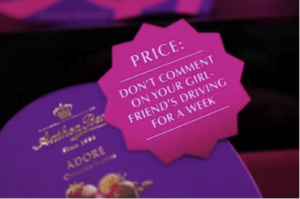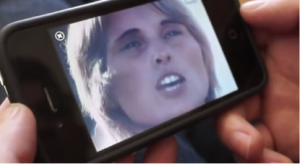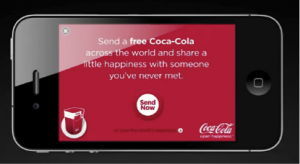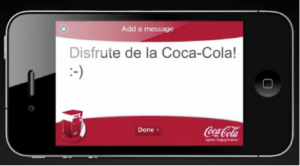It’s New Year. The time when, traditionally, we batten down the hatches and tighten our belts after the excesses of Christmas. It’s a time when our mindset is set to ‘limit’. And it’s not just about money. We set limits across lots of things we think, feel and do. This pervasive attitude can be corrosive. It can affect our attitude to resources —“We don’t need this.” It can affect our attitude to opportunities —“We don’t have time for that.” And it can even limit our attitude to people — “We don’t need to include them, do we?” All in all, hitting the limiting button is, well, pretty limiting. Saying a big fat ‘NO’ can lead us to spiral headlong into the blinkered abyss of ‘less’. So why not begin 2013 like Danny Wallace of Yes Man fame? Give more of yourself and say “YES’ instead, just to see where it takes you… You never know, Hollywood may even make a movie about what happens to you too.
Beyond give and take
Continuous giving is perhaps a rather bold approach. Isn’t it’s all about reciprocity? But although it takes a certain resilience to give and give, it might be just what’s needed to change our fortunes both spiritually and financially.
Take the Ogori Café in Japan’s Urban Design Center, Kashiwa-no-ha. It looks innocuous enough, but there’s a surprise in store. In a nutshell, you don’t get what you ordered; you get what the person before you ordered. And the person after you gets what you ordered. So, if you’re in the mood to give and give, you can choose to lavish the next customer with delicious treats. It’s an interesting experiment that explores the nature of giving, surprise, and kindness whilst encouraging strangers to strike up conversation.
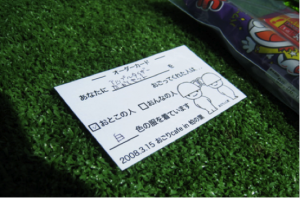
Photo. Ogori Café in Japan
Similarly, Danish chocolate brand Anthon Berg opened a pop-up chocolate shop for a day where people paid with the promise of a good deed, rather than cash or credit. The Generous Store in Copenhagen priced its boxes of chocolates with over 30 different good deeds, including serving someone breakfast in bed and cleaning a friend’s house. Customers made generous promises towards a friend or loved one on Facebook using the in-store iPads to ensure they followed through with their payment. People queued up for over an hour to make their promises and ‘purchase’ their chocolates.
Photo. Anthon Berg’s The Generous Store
Even a huge global brand likes to share the love with a little give and give. Which is why Coca-Cola is inspired to buy the world a Coke. Re-imaging their famous Hilltop ad campaign from 1971, they got together with Google to create a mobile app. This enables people to send a free can of Coca-Cola to specially-made vending machines around the world, using the “I’d Like to Buy the World a Coke” tagline. Users can also send a message to the recipient, which the application translates automatically. When the recipient collects their free cans, they can record a thank you message using the vending machine’s webcam.
Photo. Coca-Cola ‘generous’ application
Lethal generosity
Meanwhile, social media expert Shel Israel has coined a neat rally-to-action: ‘be lethally generous.’ Lethal generosity, according to Israel, is “doing incredibly kind things for your community through social media and thereby screwing your competitors.” He advises companies to set up philanthropic campaigns. Beer brand Molson Canada tried this to great effect in Toronto. Discovering that free public transport for New Year’s Eve was going to be cancelled, the company launched a Twitter campaign to raise money to have it reinstated. Molson pitched in the first $20K and invited its main rival, Labatt Breweries, to join the campaign. Labatt couldn’t decline without appearing uncharitable. And, by joining the successful campaign, supported the idea that its competitor Molson is a brand with the wellbeing of the community at its heart.
Photo. John Molson beer brand
Giving people the chance to give
Back in the UK, retailer Debenhams was badly affected by the 2011 riots, like so many other British people and businesses. However, amongst the broken glass, distressing images and public outcry, a touching tribute to community emerged. Hundreds of goodwill messages were written on boards covering the smashed windows of Debenhams in Clapham Junction. They became a beacon of the real spirit that exists in our communities and a touching response to the rioting minority.
Photo. The walls and windows of the destroyed Debenhams in Clapham Junction
The messages made such an impression on staff, customers and local businesses, Debenhams has decided to preserve the boards to show how British people rallied around after the unprecedented disturbances. Among the messages were: ‘We have taken Clapham back. The rioters won’t stop our community’. Others said: ‘Clapham, we love you. Get well soon.’
The store’s manager, Neil Roberts said, ‘While looting and destruction grabbed the headlines, the voices of ordinary people went virtually unheard. These boards tell us, in their own words, how they felt at that time. They have become priceless pieces of social documentary.”
We should applaud civic efforts like this. We should we expect brands to behave like people, and everyone (people and brands) to act in a generous, civic spirit. Because it’s good to give and give.
About the Author

Greg Taylor became founding partner in global brand design consultancy Elmwood in 1989. Now Director of Brand Provocation, Greg is the creator and facilitator of Step Change™, Elmwood’s strategic tool for moving ideas forward. Clients include ASDA, Wal-Mart, Arla Foods, BBC, COI (Defra and DfT), Cable&Wireless, Comic Relief, Debbie & Andrew’s, Durex, Glasgow 2014 Commonwealth Games, McCain, and the Met Office.
